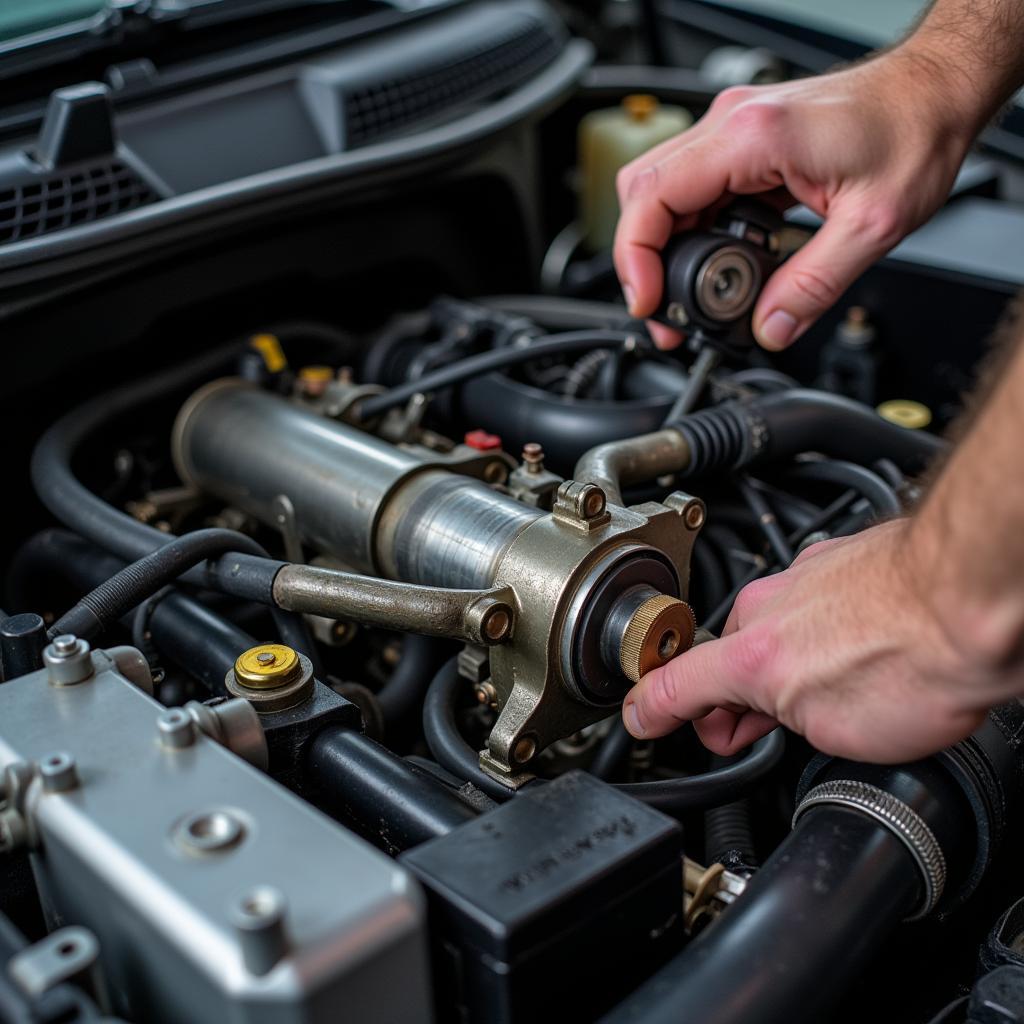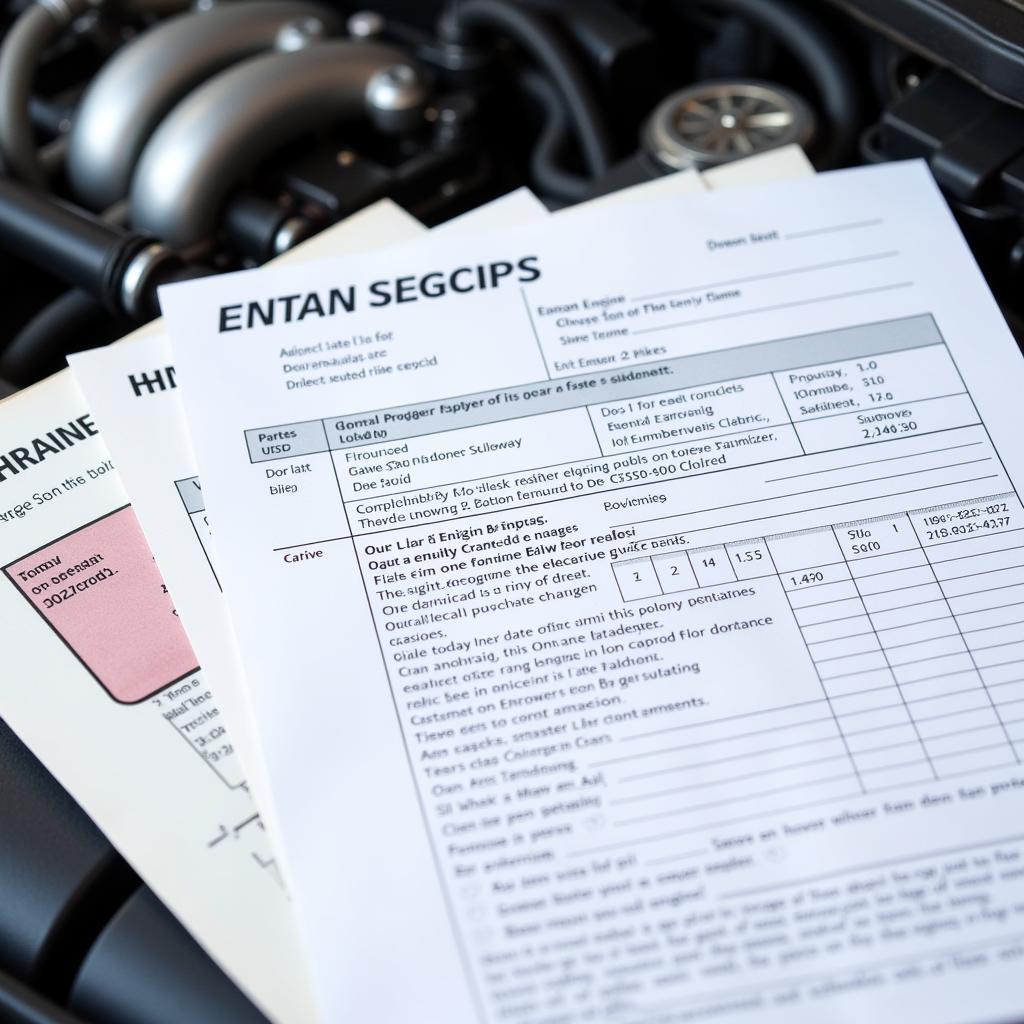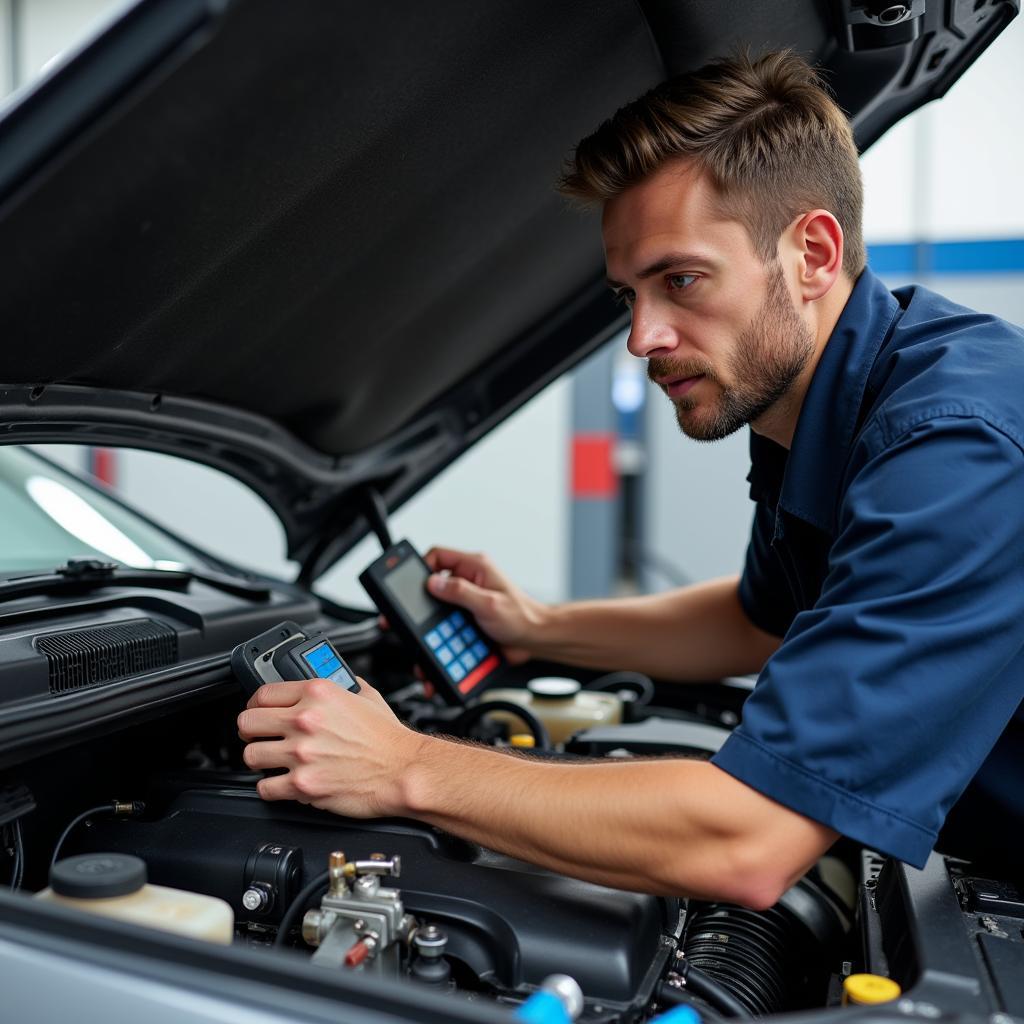Knowing how to identify whether a car engine is repaired or not is crucial when buying a used car or assessing the quality of recent work. A poorly repaired engine can lead to costly problems down the line. This article will provide you with a comprehensive guide to spotting the signs of a repaired engine, empowering you to make informed decisions.
Is your car exhibiting unusual noises or decreased performance? These could be tell-tale signs of engine repair, good or bad. Learn how to distinguish between professional repairs and shoddy workmanship to avoid future headaches. Engine repairs can range from minor fixes to complete overhauls, each leaving its own unique set of clues. This article will equip you with the knowledge to effectively evaluate the condition of a car engine and identify potential red flags. After reading this, you might be interested in learning more about how to repair inner crack car glass.
Visual Inspection: The First Line of Defense
A thorough visual inspection is the first step in identifying a repaired engine. Look for inconsistencies in paint, particularly around the engine block and surrounding components. Fresh paint in these areas can indicate recent work. Also, check for mismatched bolts or parts, which could suggest a hasty or unprofessional repair. Look for signs of welding or patching, especially on the engine block or cylinder head. These could indicate more serious repairs, such as cracks or damage from overheating.
 Inspecting Engine Compartment for Signs of Repair
Inspecting Engine Compartment for Signs of Repair
Pay close attention to wiring and hoses. Frayed wires, poorly secured connections, or new hoses in an otherwise older engine bay can all point to recent repairs. While some of these might be routine maintenance, they can also be associated with more significant engine work. If you’re dealing with battery issues, check out our guide on how to repair car battery cell.
Documentation: A Crucial Piece of the Puzzle
Requesting documentation is essential when evaluating a used car with a potentially repaired engine. Service records can provide valuable information about the nature and extent of any repairs. Look for detailed invoices outlining the parts used, labor performed, and the reasons for the repair. A comprehensive history can indicate a well-maintained engine, while a lack of documentation can raise concerns.
 Car Service Records Showing Engine Repair History
Car Service Records Showing Engine Repair History
Remember, complete and detailed records are a positive sign, while missing or vague information can be a red flag. If the seller is hesitant to provide documentation, it might be best to move on. For those interested in other car repairs, we have a guide on how to repair car silencer.
Performance Testing: Putting the Engine to the Test
A test drive can reveal much about the condition of an engine, especially if it has been repaired. Listen for unusual noises, such as knocking, ticking, or hissing. These sounds can indicate underlying issues that may not be immediately apparent during a visual inspection. Pay attention to how the engine responds to acceleration and deceleration. Hesitation, stuttering, or rough idling can all be signs of a poorly repaired engine.
Seeking Professional Advice: When in Doubt, Ask an Expert
If you’re still unsure after performing these checks, it’s always best to seek professional advice. A qualified mechanic can perform a thorough inspection and identify any potential problems. They can also provide insights into the quality of previous repairs and assess the overall health of the engine. You may even want to learn more about whether a car AC compressor can be repaired.
 Mechanic Inspecting Car Engine for Professional Assessment
Mechanic Inspecting Car Engine for Professional Assessment
Conclusion: Making Informed Decisions
Knowing how to identify whether a car engine is repaired or not is essential for any car buyer or owner. By combining visual inspection, documentation review, performance testing, and professional advice, you can make informed decisions and avoid costly mistakes. Remember, a well-maintained and properly repaired engine is crucial for the longevity and reliability of your vehicle. If you’re concerned about engine compression, you can also find information on how to repair car engine compression.
FAQ
- What are the most common signs of a repaired engine? Look for mismatched paint, new parts in an older engine bay, and signs of welding or patching.
- Why is documentation important when evaluating a repaired engine? Service records can provide valuable insights into the nature and extent of previous repairs.
- What should I listen for during a test drive? Pay attention to unusual noises, hesitation, stuttering, or rough idling.
- When should I seek professional advice? If you’re unsure about the condition of the engine after performing your own checks.
- How can I ensure the longevity of my car engine? Regular maintenance and timely repairs by qualified professionals are crucial.
- Is it always bad if an engine has been repaired? Not necessarily. Properly executed repairs can restore an engine to optimal performance.
- What are some common engine problems that require repair? Overheating, low compression, and oil leaks are some examples.
Further Questions?
Check out these other articles on our website:
- Can Car AC Compressor Be Repaired?
Need Help?
Contact us via WhatsApp: +1(641)206-8880 or Email: [email protected]. Our customer support team is available 24/7.

Leave a Reply